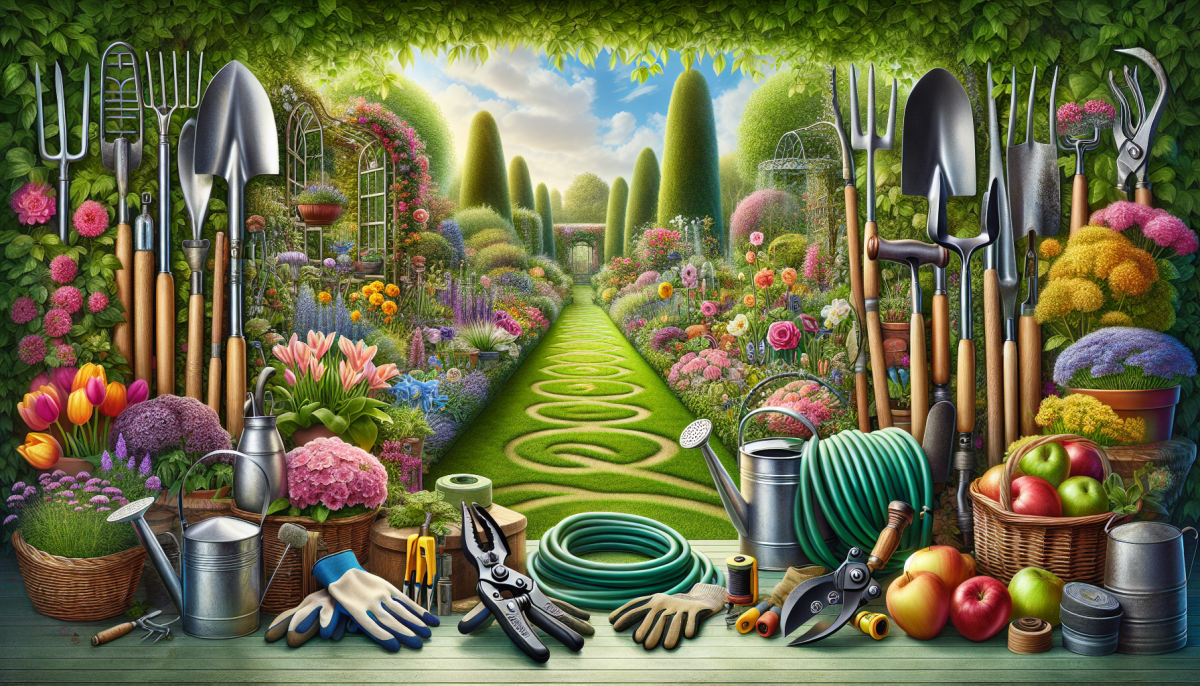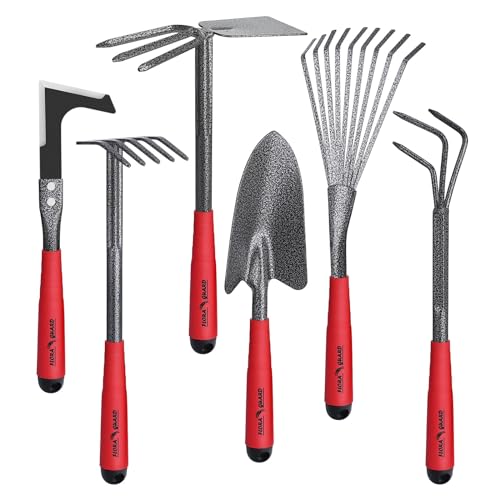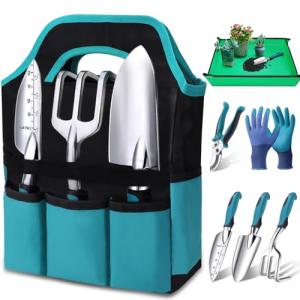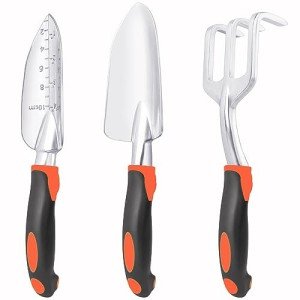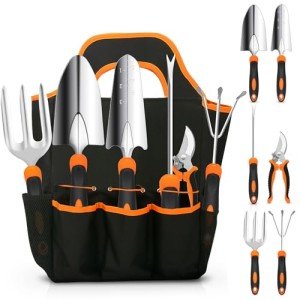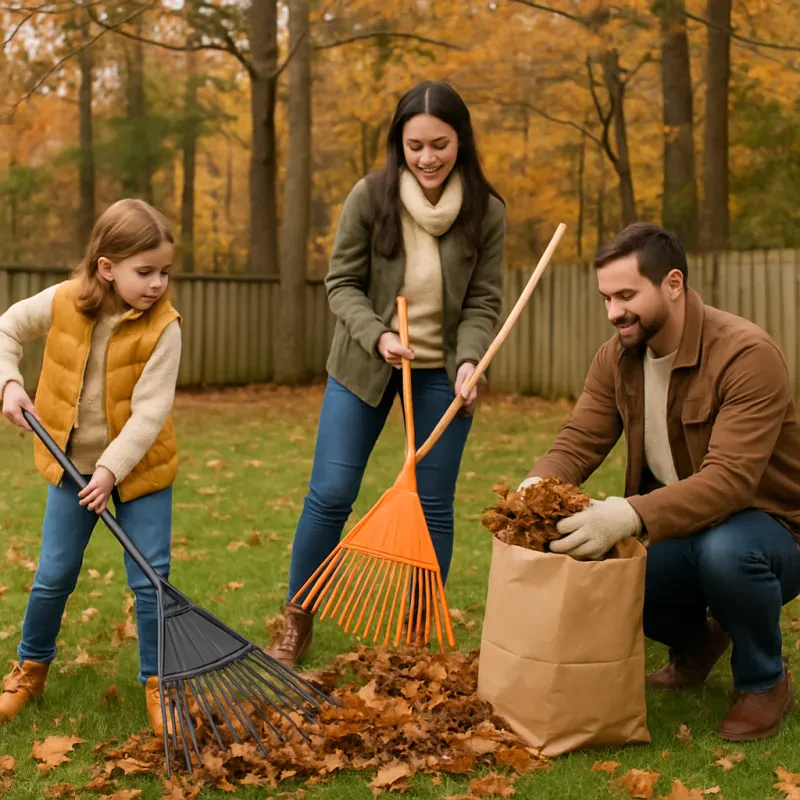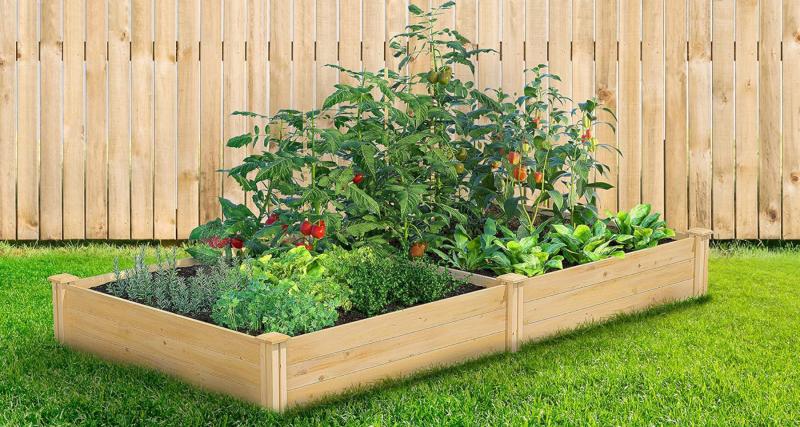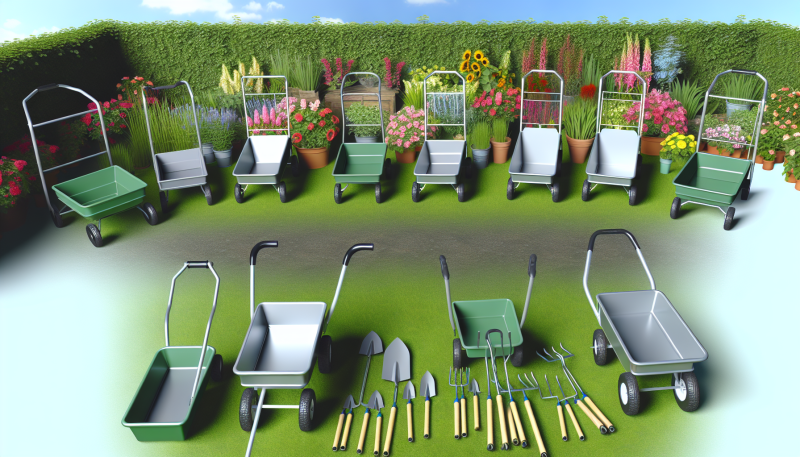Basic Tools
If you're stepping into the world of gardening, having the right gear can make all the difference. Here are some must-have tools that every gardener should consider as essential garden tools. They not only help you get the job done but also make the experience so much more enjoyable!
1. Trowel
A good trowel is essentially your best friend in the garden. Whether you're planting, digging, or transferring soil, a sturdy trowel can handle it all. Look for one with a comfortable grip to make your tasks easier on the hands.
2. Pruning Shears
Keeping your plants healthy means regular trimming. Pruning shears are key to shaping your plants and removing dead or diseased branches. Opt for lightweight shears with sharp blades for a clean cut, ensuring your plants thrive.
3. Gardening Gloves
Don’t underestimate the power of a good pair of gardening gloves! They protect your hands from dirt, thorns, and potential cuts. Look for gloves that fit well and offer a bit of grip; you'll thank yourself later when it comes time to pull weeds or handle tools.
4. Rake and Hoe
These two tools are essential garden tools in any gardener’s shed. A rake is perfect for clearing away leaves or debris, while a hoe helps break up tough soil and control weeds. Together, they make maintaining your garden much simpler.
5. Cultivator
A cultivator is a fantastic tool for loosening soil, mixing in nutrients, and aerating garden beds. It makes planting easier and improves overall soil health. Whether you're working with a hand cultivator for small areas or a larger one for bigger plots, it's a must-have for any gardener.
Other Tool Considerations
1. Spade
A spade is invaluable for digging, edging, and moving soil. With its flat, sharp blade, it’s perfect for slicing through tough ground, digging planting holes, or shaping garden beds. Look for one with a durable, comfortable handle to reduce strain.
2. Watering Can or Hose with Nozzle
Watering properly is essential, and having a good watering can or adjustable hose nozzle ensures you deliver the right amount of moisture to your plants. A watering can with a long spout offers precise watering, while a hose nozzle with multiple settings lets you control pressure and distribution.
3. Garden Fork
Often overlooked, a garden fork is excellent for loosening compacted soil, mixing in nutrients, and aerating planting beds. Its sturdy metal tines help break up tough dirt more effectively than a spade.
4. Weeder
This tool is specially designed to help remove weeds from the garden with minimal disruption to your plants. Some weeders have long handles for standing use, while hand weeders allow for precision removal of deep-rooted weeds.
5. Kneeling Pad or Garden Stool
Gardening can be hard on the knees and back, so a cushioned kneeling pad or garden stool offers support and comfort. Some stools even have built-in storage for tools, making them extra handy.
6. Wheelbarrow or Garden Cart
Moving soil, mulch, plants, or compost can be tiring, and a wheelbarrow or garden cart makes transport easier. Consider one with a sturdy frame and balanced weight distribution to reduce strain on your arms.
7. Garden Twine and Plant Supports
Perfect for securing plants, tying vines, and supporting tall flowers or vegetables. Stakes, cages, and trellises help plants grow upward, ensuring better air circulation and easier harvesting.
Choosing the Right Tools for You
Choosing the right tools can make a world of difference in your gardening experience. If you’re new to gardening or looking to upgrade your current collection, it’s important to consider which essential garden tools best suit your needs.
Garden size
Start by thinking about the size of your garden. If you have a small space, a few multi-purpose tools might be all you need. A sturdy hand trowel, a pair of pruning shears, and a good pair of gloves can go a long way. These essentials are lightweight and easy to maneuver, making them perfect for digging, planting, and trimming in tight spots.
Tool size
For larger gardens, investing in a variety of tools can save you time and energy. Look for essential garden tools like a spade for turning soil, a rake for clearing debris, and a hoe for weeding. Bigger tools can help you tackle larger projects more efficiently, plus they often require less effort than smaller counterparts.
Specialized tools
Don’t forget about specialized tools based on your gardening style! If you’re into vegetable gardening, a seed dibbler or a measuring wheel can help you plan out your garden rows precisely. Flower gardeners might appreciate a good cultivator or a pruning saw for shaping their blooms.
Designed for comfort and durability
Lastly, think about comfort and durability. Ergonomically designed handles can reduce strain, especially during long planting sessions. Look for tools made from high-quality materials that will stand the test of time. Choosing the right essential garden tools will not only enhance your gardening experience but also help you grow a thriving garden you can be proud of!
Essential Tool Maintenance Tips
Taking care of your essential garden tools can make a big difference in how well they perform in your garden. Believe it or not, a little maintenance can extend their life and keep them working effectively. Here are some easy tips to help you keep everything in top shape.
First off, always clean your tools after each use. Soil and plant debris can build up and cause rust or corrosion. Just grab a stiff brush or a quick hose down to remove any gunk. For stubborn dirt, a mixture of water and mild soap works wonders. Once they're clean, let them dry completely before storing.
- Lubricate Moving Parts: For tools with any moving parts, a little lubricant can go a long way. Use machine oil or WD-40 on hinges and joints to keep them moving smoothly.
- Sharpen Blades: Keeping your cutting tools sharp not only makes your work easier but also gives cleaner cuts to plants. A simple sharpening stone is a handy tool to keep in your shed.
- Store Properly: How you store your essential garden tools matters. Try to hang them or keep them off the ground to avoid moisture accumulation. A pegboard can be a great way to keep things organized and accessible.
Taking these small steps can make your essential garden tools last longer and perform better. Plus, it’s an easy way to keep your gardening game strong and enjoyable!
Handy Tips for Garden Tool Storage
Keeping your essential garden tools organized is just as important as having the right tools themselves. An organized space not only makes it easier to find what you need but also helps prolong the life of your tools. Here are some handy tips to keep everything sorted and stored properly.
Toolbox or cart
First off, consider investing in a sturdy toolbox or a rolling cart. These are great for keeping smaller tools like trowels, hand pruners, and gloves neatly together. A rolling cart can be especially helpful if you often change locations in your garden. Just roll it to where you need it, and you’re all set!
Vertical storage shed
For larger tools such as shovels, rakes, and hoes, a vertical storage solution can save space and keep your garage or shed tidy. You can use wall-mounted racks or pegboards to hang them up. This not only keeps them off the ground but also makes it easier to see what you’ve got at a glance.
Labeling
Don’t forget about labeling! If you’re using bins or drawers to store your essential garden tools, a simple label can save you a lot of time searching for that specific tool when you're in the middle of planting. Just a little prep can make your gardening experience much smoother.
Clean before storage
Finally, remember to clean your tools before storing them away. A quick wash and drying session will help prevent rusting and keep everything in tip-top shape. Taking these small steps can make a world of difference in your gardening routine.
